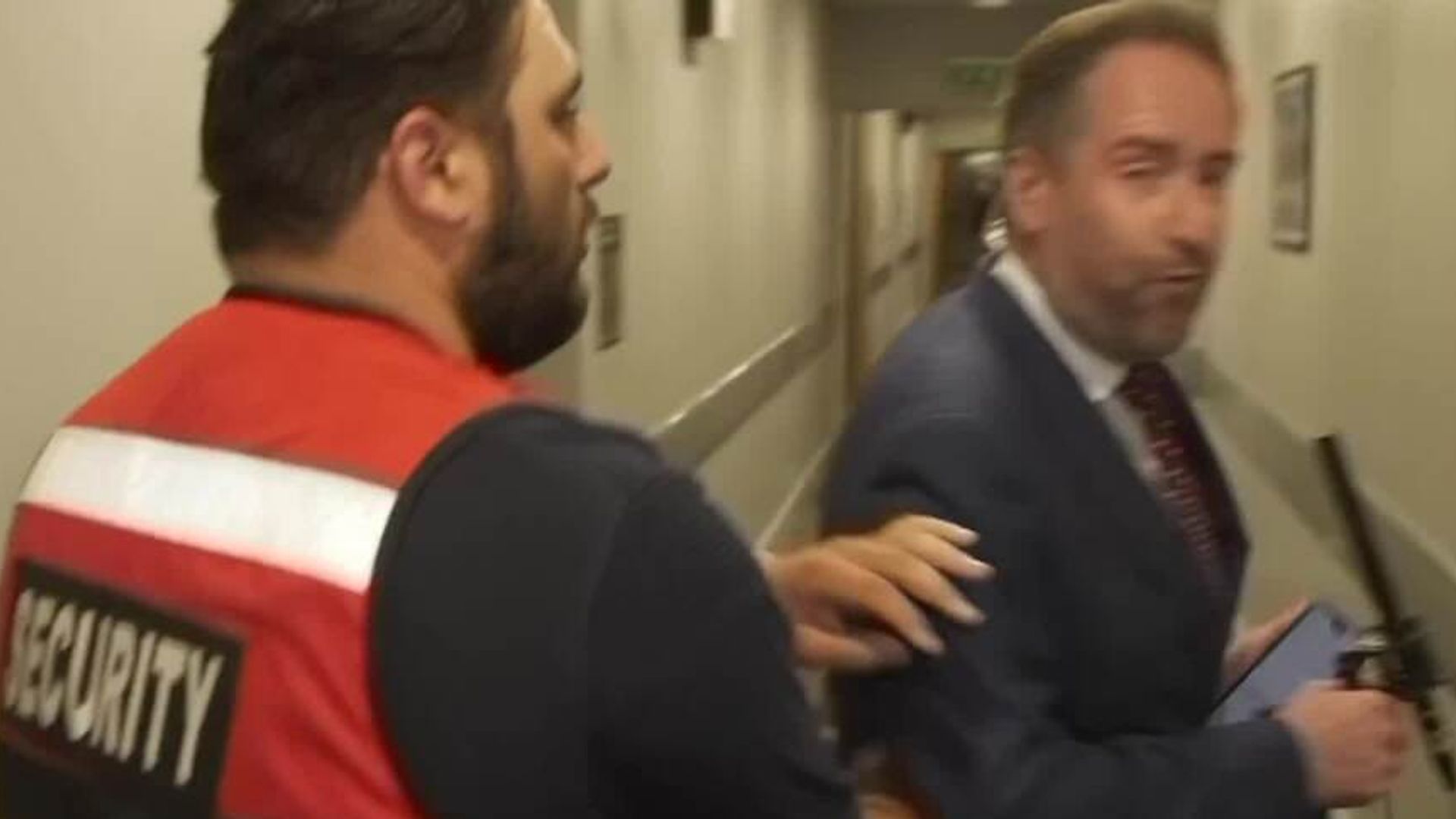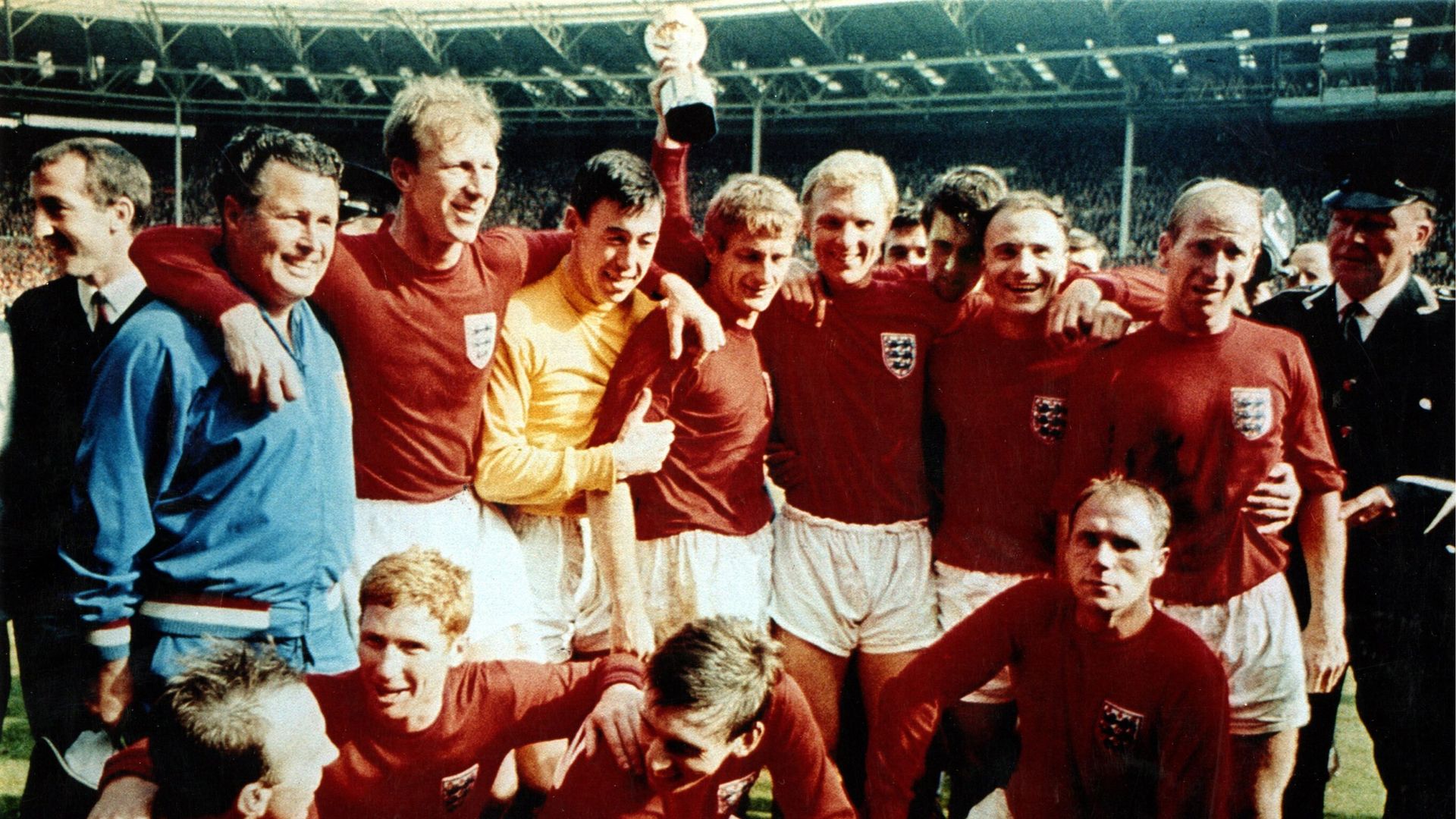Rishi Sunak’s first campaign event got off to a chaotic start as a Sky News broadcast team was removed from the venue.
Political correspondent Darren McCaffery and his crew were escorted from the Excel centre in east London by a security guard while live on air.
Politics Live: Rishi Sunak sets date for general election
As he was being removed from the room, Darren said: “We just simply wanted to have access tonight, but unfortunately, we are told that because there are pool arrangements in place, we are not allowed to be here.”
A pool arrangement means other broadcasters are obliged to share their footage.
The rally came hours after a rain-soaked Mr Sunak fired the starting gun for a summer election on 4 July.
I’ve been to many campaign rallies in my time as a political journalist. And while they are there to help gee up activists, they are primarily media events there to demonstrate enthusiasm.
So, it’s not a surprise us journalists are invited and we turn up.
Rishi Sunak is the Conservative leader and this is an election campaign after all.
And while the event was being “pooled” (shared with other broadcasters) it soon transpired we would be allowed access but not allowed to film individual bits for Sky News.
Discussions ensued. And when no agreement could be found we were told by security we would be removed.
I was genuinely taken aback that it was happening and indeed that it would happen as we came live on air
Trying to broadcast was not easy. But we felt it was important to show why we weren’t allowed in and the problems journalists often face gaining access to the politicians.
The surprise move is seen as a huge political gamble given the Tories are trailing Labour by around 20 points in the polls.
It’s a date – Rishi Sunak calls a July election
Sunak has gambled on election date knowing success under any definition is hard
General election: The key issues at play in Northern Ireland, Scotland, and Wales as campaign begins
But the prime minister appeared in a celebratory mood at the event as he pitched himself as the underdog in a speech flanked by his cabinet colleagues and around 100 Tory activists.
With his jacket ditched and his sleeves rolled up, Mr Sunak set himself out as the stability candidate who could be trusted on the economy and global security.
“The only certainty with Labour is that they will run out of money,” he said.
He said Labour would scrap the Rwanda policy and “enact a de facto amnesty for asylum seekers, making us a magnet for every illegal immigrant in Europe”.
“In every way, Labour would make our country less secure,” he added.
Tacitly acknowledging his opinion poll deficit, he added: “Labour want you to think that this election is over before it has even begun.
Please use Chrome browser for a more accessible video player
“But we are going to fight every day for our values and our vision and the British people are going to show Labour that they don’t take too kindly to being taken for granted.”
A July election is earlier than many in Westminster had expected, with a contest in October or November widely thought to have been more likely.
Mr Sunak’s announcement came after the Office for National Statistics said Consumer Price Index (CPI) inflation slowed to 2.3% in April, down from 3.2% in March.
Read more about the general election:
What happens now an election has been called?
Find your new constituency and how it’s changed
How boundary changes make Starmer’s job harder
The MPs who are standing down
Please use Chrome browser for a more accessible video player
Speaking to Sky News from outside the venue, Housing Secretary Michael Gove rejected an assertion the timing of the election was a massive gamble, saying: “I think there’s a clear choice. And I think the prime minister is courageous, principled.”
But Labour leader Sir Keir said: “If they get another five years they will feel entitled to carry on exactly as they are. Nothing will change.”
He promised a “new spirit of service”, putting the country before party interests.
“I am well aware of the cynicism people hold towards politicians at the moment, but I came into politics late, having served our country as leader of the Crown Prosecution Service, and I helped the Police Service in Northern Ireland to gain the consent of all communities.”








